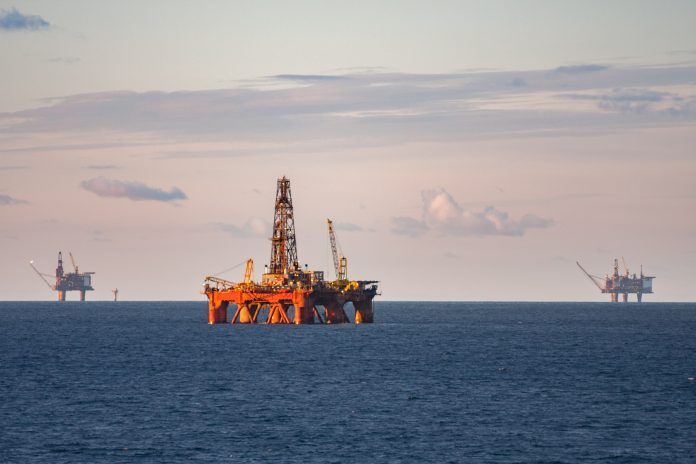A UCL report states that new North Sea oil and gas fields are incompatible with the Paris Agreement climate goals. Researchers urge the UK government to cease licensing and halt the development of existing fields like Rosebank and Jackdaw, preventing catastrophic warming
Opening any new oil and gas fields in the North Sea is fundamentally at odds with the global ambition to limit warming to 1.5°C, or even “well below 2°C,” as stipulated by the Paris Climate Agreement. This stark conclusion comes from a new report published today by academics at University College London (UCL), who are now urging the UK Government to cease licensing new exploration and halt the development of already-licensed fields.
The report, a collaborative effort by researchers from the UCL Energy Institute, UCL Department of Political Science, and UCL Policy Lab, delivers a clear message: the planet cannot afford any further expansion of fossil fuel extraction if it hopes to avoid the most catastrophic impacts of climate change. This would mean an immediate end to new exploration licences and a refusal of development consent for projects like the controversial Rosebank and Jackdaw fields, whose previous approvals were recently deemed unlawful by a Scottish court.
North Sea oil and gas fields: The alarming climate science behind the report
The research meticulously synthesises the latest scientific evidence and peer-reviewed literature on the climate implications of new oil and gas extraction. Drawing heavily on the authors’ own work published in prestigious journals such as Science and Nature, alongside hundreds of other studies and datasets, the report highlights a critical finding: humanity has already committed to exceeding the 1.5°C warming limit if all the oil and gas in currently operating or under-development fields is burned.
According to the study, the world’s “committed emissions” from existing fields amount to a staggering 469 gigatonnes of carbon dioxide.
This figure is approximately three times the remaining carbon budget required to keep warming within the 1.5°C threshold. Lead author Greg Muttitt (UCL Energy Institute) underscored the urgency of the situation, stating, “Climate impacts are already threatening people’s homes, our farming and our economy, so reducing emissions is now urgent. We’ve brought together the peer-reviewed scientific literature on oil and gas, which sends a clear message: there’s no room for new fields to be opened. When you’re in a hole, you have to stop digging.”
UK Government at a crossroads
The timing of this report is particularly pertinent, as the UK Government faces crucial decisions regarding new North Sea fossil fuel projects. Specifically, it must determine how to implement its stated policy of ending new exploration licensing and whether to re-approve the development of the Rosebank and Jackdaw fields.
The typical process for new oil field development in the UK involves two stages: first, the award of an exploration license, and second, following a discovery, development consent to begin extraction. The UCL researchers advocate for an immediate cessation of all future exploration licences and a refusal to grant new development consents to fields that have been explored but are not yet operational. The legal challenge that overturned the previous approvals for Rosebank and Jackdaw serves as a stark reminder that the climate impacts of consuming these fuels must be rigorously considered.
A chance for global climate leadership
The report suggests that by aligning its policies with scientific consensus, the UK could solidify its reputation as a global climate leader. Co-author Dr. Fergus Green (UCL Political Science) emphasised this point, stating, “Our report lays out the evidential basis for rejecting new field development consents on climate grounds. More broadly, this is a real chance for the UK Government to show world leadership in an important aspect of climate action. The UK has long been recognised as an influential climate leader. Ending new licences and consents for oil and gas exploration and production would send a powerful signal to the rest of the world about the need to stop expanding fossil fuel production.”
Echoing this sentiment, co-author Professor Steve Pye (UCL Energy Institute) added, “The planet has a limited remaining carbon budget and oil and gas production from existing fields is already likely to exceed this limit. It’s critical that in order to meet climate goals under the Paris Agreement, no new oil and gas fields should be permitted. The UK has the opportunity to further demonstrate its role as a global climate leader by restricting new production while ensuring a just transition for the oil and gas sector in the UK.”
Economic risks and the Paris Agreement context
Beyond the environmental imperative, the researchers also highlight the financial risks for the oil and gas sector itself. With the global energy system rapidly transitioning towards cleaner alternatives, new oil and gas fields face the substantial risk of becoming “stranded assets” – investments that fail to deliver expected commercial returns as demand for fossil fuels wanes.
The Paris Climate Agreement, signed by nearly 200 governments in 2015, commits signatories to keeping global temperature rise “well below” 2°C above pre-industrial levels, while actively striving to limit it to 1.5°C. The report underscores that even a seemingly small difference in global temperature can lead to significantly worsened climate impacts, making the 1.5°C target a critical benchmark for managing climate change risks.
The UCL report provides unequivocal scientific backing for a decisive shift away from new North Sea oil and gas developments, presenting both an environmental necessity and an opportunity for the UK to reaffirm its commitment to global climate action.











